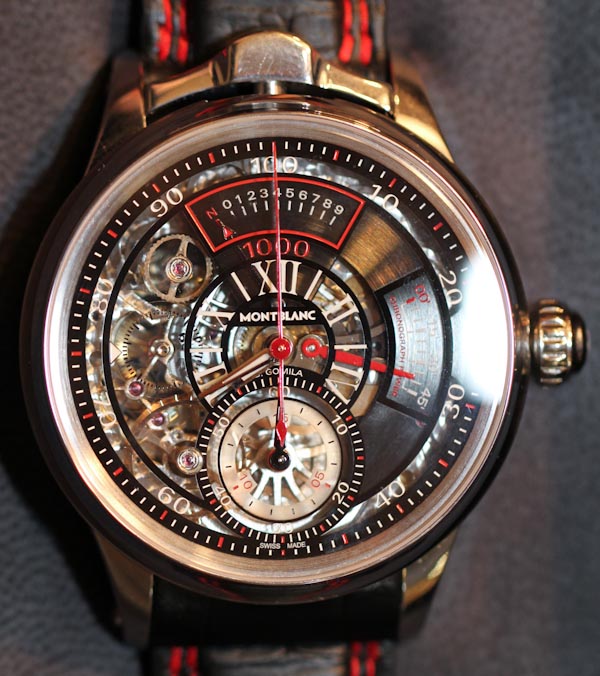
Precision chronographs seem to be on the mind of many watch makers this year. Tag Heuer certainly has their share of innovations and everyone seems to want to push forth into a territory people once thought of as “well if you need that kinda precision then get a digital watch.” But I digress! Montblanc this year came out with a concept watch that competes with the Tag Heuer Mikrotimer 1/1000th of a second chronograph called the Timewriter II Chronograph Bi-Frequence 1000.
The Timewriter II Chronograph Bi-Frequence (‘Bi-Frequency’ – I don’t know about you but I am certainly bi-frequency curious) 1000 is precise like the Tag Heuer but offers a totally different system of achieving the same level of precision. The guy who developed the system is a clever Spanish watch maker named Bartomeu Gomila – his name is right there on the dial. He explained the system to me like a pro, but like a novice I just nodded and smiled a lot. The basic idea is this: the oscillator in the Timewriter II operates at 50 hertz, but to measure 1/1000th of a second in the traditional way it would need to actually run at something close to 500 hertz. How it works is by having a system that “catches” the balance wheel more than just once each turn. Actually 50 times each turn of the wheel. The ability to move a gear 100 times in each full turn versus two is the trick to the system.
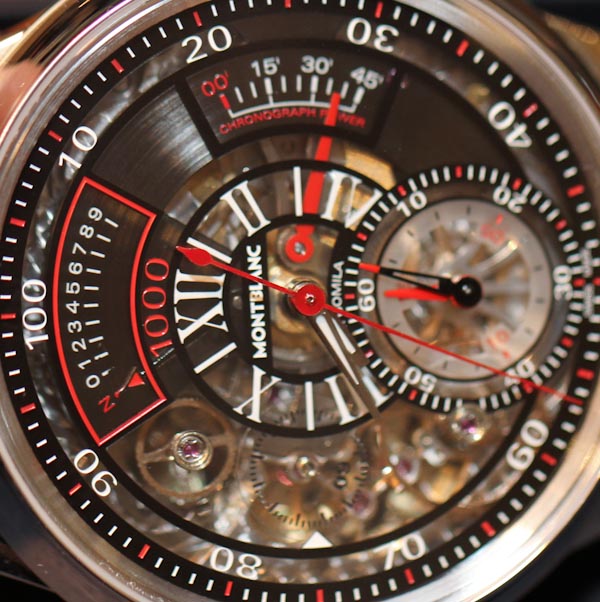
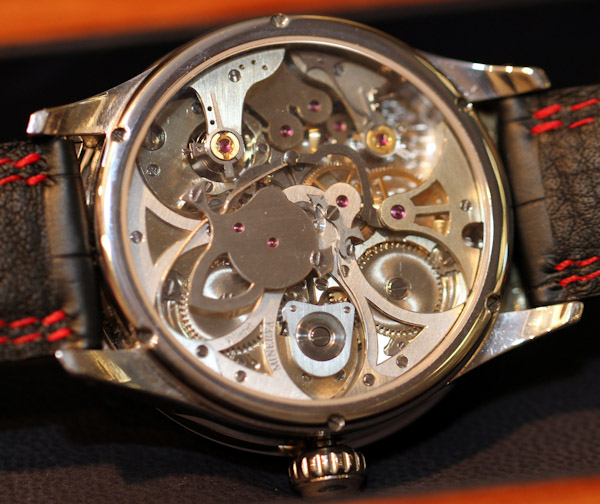 [youtube http://www.youtube.com/watch?v=5CUwjOxOt6k]
[youtube http://www.youtube.com/watch?v=5CUwjOxOt6k]
Like many high-speed chronograph watches, the Timewriter II has two balance wheels. One for the time running at 2.5 hertz, and another one used for the chronograph. 50 hertz is still fast, but is slow enough that Montblanc feels it can resist wear and tear for a good while if the chronograph is used a lot. The power reserve for the chronograph is a full 45 minutes. Which is actually a long time given the speed and power requirements of the system. The chronograph has a double column-wheel system and uses a pusher located on the top of the case to activate, stop, and reset the chronograph.
Reading the watch looks intimidating at first glance, but is actually rather logical and nicely mixed in with the skeletonized elements. Note that my images are of a prototype. So the finishing is not complete – especially on the rear of the movement (which is not polished like it will be). Overall the design is quite lovely. Time is read via hands in the center of the dial. The watch dial is actually quite small, but it is there in the middle. A sapphire crystal disc is used as the subsidiary seconds hand to the left of the time dial. To its right is a power reserve indicator for the chronograph.
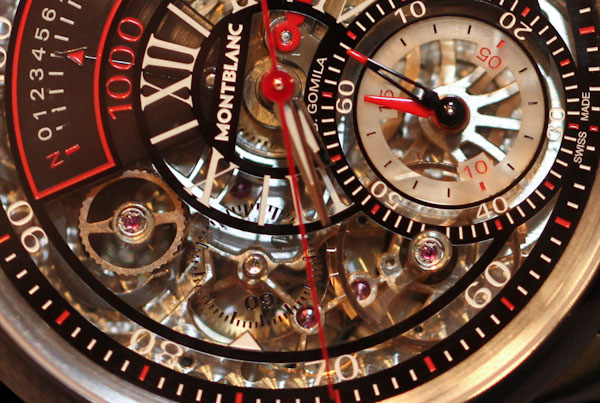
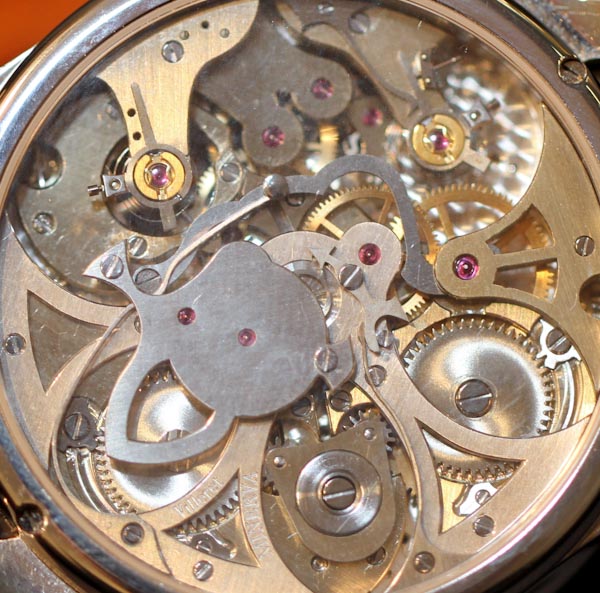
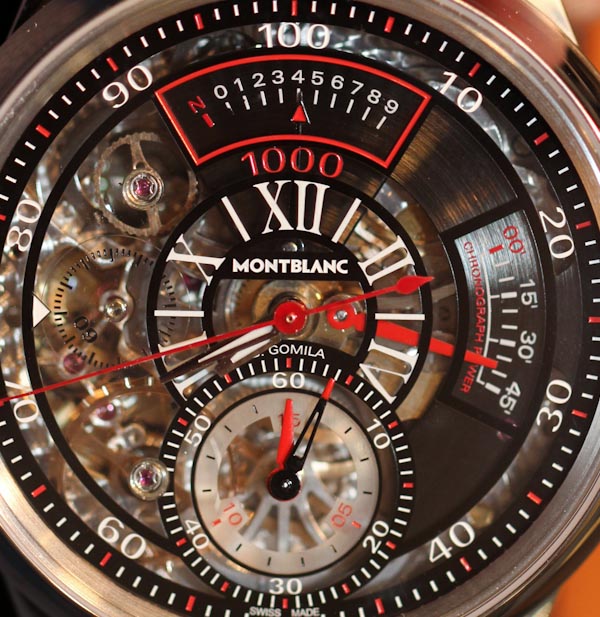
The chronograph itself has a range of dials to display the time measurement. The lower subdial has two hands that indicate the elapsed minutes (up to 15 minutes) and the elapsed seconds. The central flying hand measures the 1/100th of a second units while another semi-linear hand under 12 o’clock indicates the 1/1000th unit. That latter hand only moves when the chronograph is stopped if I recall correctly.
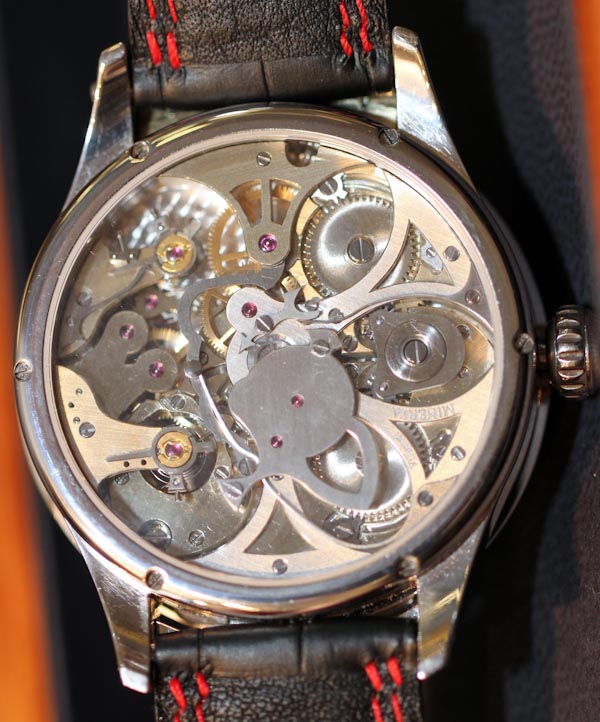
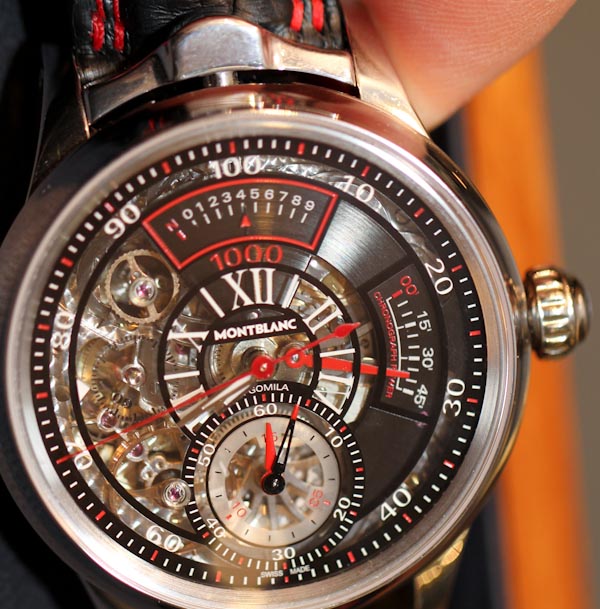
The Timewriter II Chronographe Bi-Frequence 1000 will be a limited production watch – of just 36 pieces. The case is 47mm wide in 18k white gold. It might take a bit for the boys in Villeret to get it primed for commercial production. As I mentioned, the watch will be part of Montblanc’s highest-end production of watches that are made in the Villeret facility. It is pretty darn cool and for the privilege to own this little number it will cost just a tad over $305,000.
